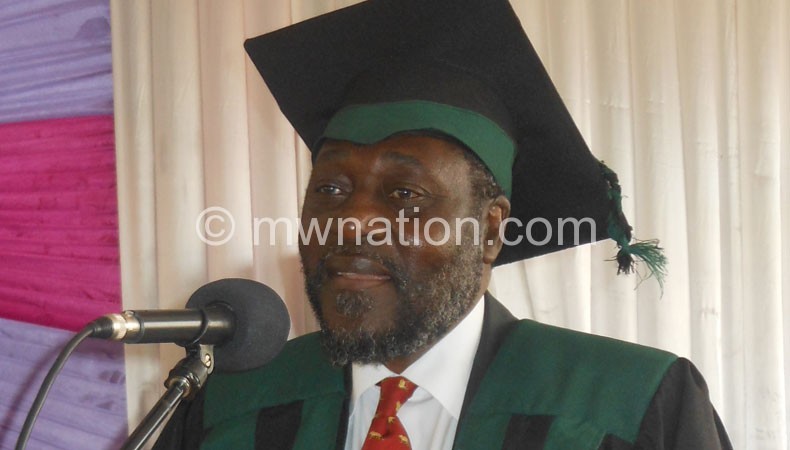‘Investing in the youth is not an option’
As Malawi joins the global community in celebrating the International Labour Day tomorrow, our reporter FATSANI GUNYA sought the view Minister of Labour and Manpower Development, HENRY MUSSA on the country’s labour situation.

Malawi will be commemorating the Labour Day on Sunday, just how significant is the day?
The backbone of economic development of any nation is the presence of a base of skilled workforce with competences relevant to the needs of that economy. Skills empower people and let them play active roles in the development of a family, community and country. In essence, Labour Day is commemorated yearly to celebrate the accomplishments of workers. Talking of the significance of the day, I would like to quote what Abraham Lincoln once said: “Labour is prior to, and independent of, capital. Capital is only the fruit of labour, and could never have existed if labour had not first existed. Labour is the superior of capital, and deserves much the higher consideration.” The celebration has become a historic significance and celebrated by the labour unions worldwide. In Malawi, we are focusing on the welfare of the workforce, hence the theme ‘Workforce, our drive to development.’
The government recently launched the revised Tevet Policy, what does it entail in a nutshell?
The Tevet Authority, a regulatory body that was established in 1999 by an Act of Parliament, is mandated to coordinate and facilitate the provision of technical, entrepreneurial and vocational education and training in Malawi. In view of the above, government realised that the old Tevet policy, which was developed in 1987, was outdated and no longer responded to the current needs of the labour market. The world is changing fast and for Tevet to be relevant there was a need to review that policy. It was reviewed in order to incorporate a number of developments that have taken place. The purpose of the review was to identify skills gaps and develop options and strategies for enhancing Tevet objectives and improving efficiency and effectiveness of the Tevet system. The review was also aimed at aligning Tevet to broader socio-economic objectives of the country as a way of addressing existing skills gaps.
We are expecting the first cohort of students from the community technical colleges to graduate in December this year. What plans does the ministry have for this particular group of people?
We will be graduating students in various skills such as bricklaying, metal work, carpentry and joinery and many more. These should add value to the country’s workforce that is a driver of the economy on its own. Most importantly, all these will either be employed or become entrepreneurs. In the latter case, they will in turn create employment for others as well. The government is ready to ensure that we facilitate their absorption into the labour markets. The ministry will also facilitate the setting up of their own small and medium scale enterprises.
As the largest employer in the country, does the government have plans to help link these skilled workers to labour markets in the system?
Absolutely! In fact, we don’t have a choice, do we? Our demographic dividend suggests that 80 percent of the population comprise the youth. As such, investing in the youth is not an option; it’s a must for any meaningful government. Let me also say that it’s not all about skills; we are talking about education as a whole, better health services and many more others.
One of the issues usually put forward by labour movements is occupation health and safety and minimum wages; any programmes the ministry has in place to ensure safety in the workplace?
Malawi would like to attract more investors into the country to help revive our economy, but it does not mean the government would be averse to penalising anyone caught on the wrong side of the law as far as workers welfare is concerned. There is a need to strike a balance between accommodating investors with the hope of building our economy and the value government attaches to its people. There is no doubt that decent work is a social factor that determines an individual, family and community’s health. The quality of work determines the quality of an individual‘s life. With decent work, an individual can access good food, housing, water and other basic needs of life, thereby ensuring good health. In case of sickness, if an individual has work, they are able to access medical facilities because there is such a close connection between decent work and good health. As such, we will not hesitate shutting down companies that may be infringing the rights of their workers in the name of enhancing economic development through their investments. And the inspection exercises to the same will remain ongoing in a bid to arrest unscrupulous employees who may not be complying with the labour laws. n





